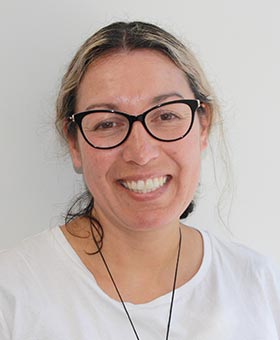
Tuari-Toma joined Leanne Manson as a second policy analyst Māori on the research team last month, NZNO professional services manager Mairi Lucas said.
Tuari-Toma said she would be focusing on how te ao Māori tikanga, whakapapa, matauranga (knowledge) could influence NZNO’s “bicultural transformation”. This would allow more scope to address equity in policy and research.
There was a lot of pressure on Māori nurses and all Māori hauora kaimahi (health workers) to work within structures not always supportive of a te ao Māori cultural perspective, she said. Nor were obligations to Māori whānau, hapū and iwi outside the workplace often considered. “The innate role to care, protect and help never stops. Consequently, it is important to address pay inequities for those in Māori/iwi providers, in particular those working in community with high health needs,” Tuari-Toma said. “Being adequately resourced at all levels, professionally, is equally important as having recognition of te ao Māori.”
Her approach would be based on te ao Māori whakapapa to whakamana (empower) the mana motuhake (self-determination) of iwi, hapū and whānau, while drawing on te Tiriti o Waitangi and the obligation to tino rangatiratanga (sovereignty within the Treaty partnership).
Tuari-Toma is also a contemporary practitioner of rongoā Māori (traditional healing).
She works voluntarily for iwi collective ART (Te Atiawa, Raukawa and Ngāti Toa Rangatira) and Te Awakairangi Tihei Mauri Tu, which supports Māori survivors of state care, by reconnecting whānau with tikanga Māori values.
She brought experience in Māori public health, research and analysis, policy and ministerial advice, among other things, Lucas said.




